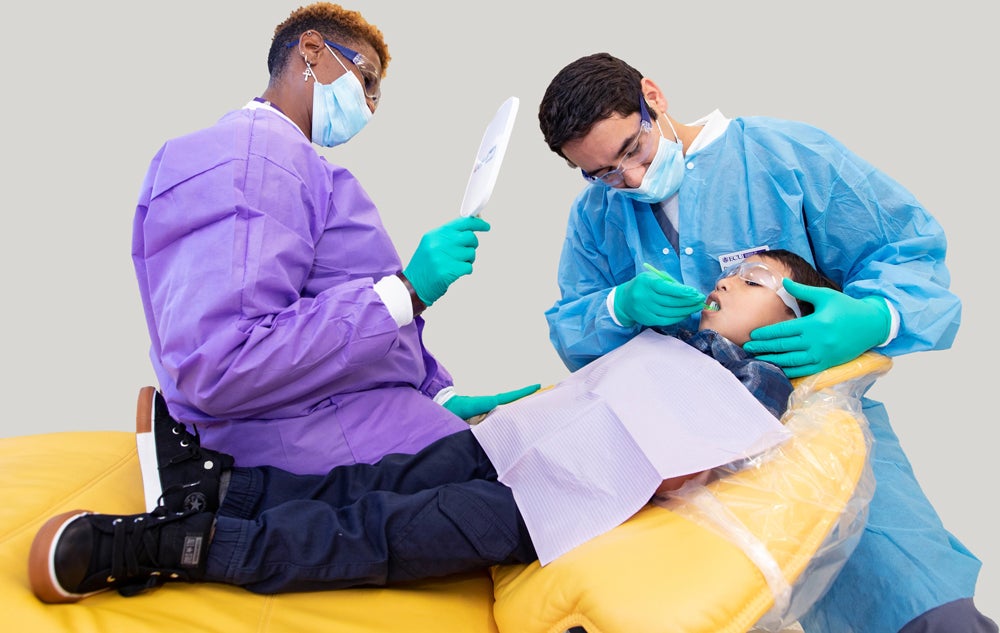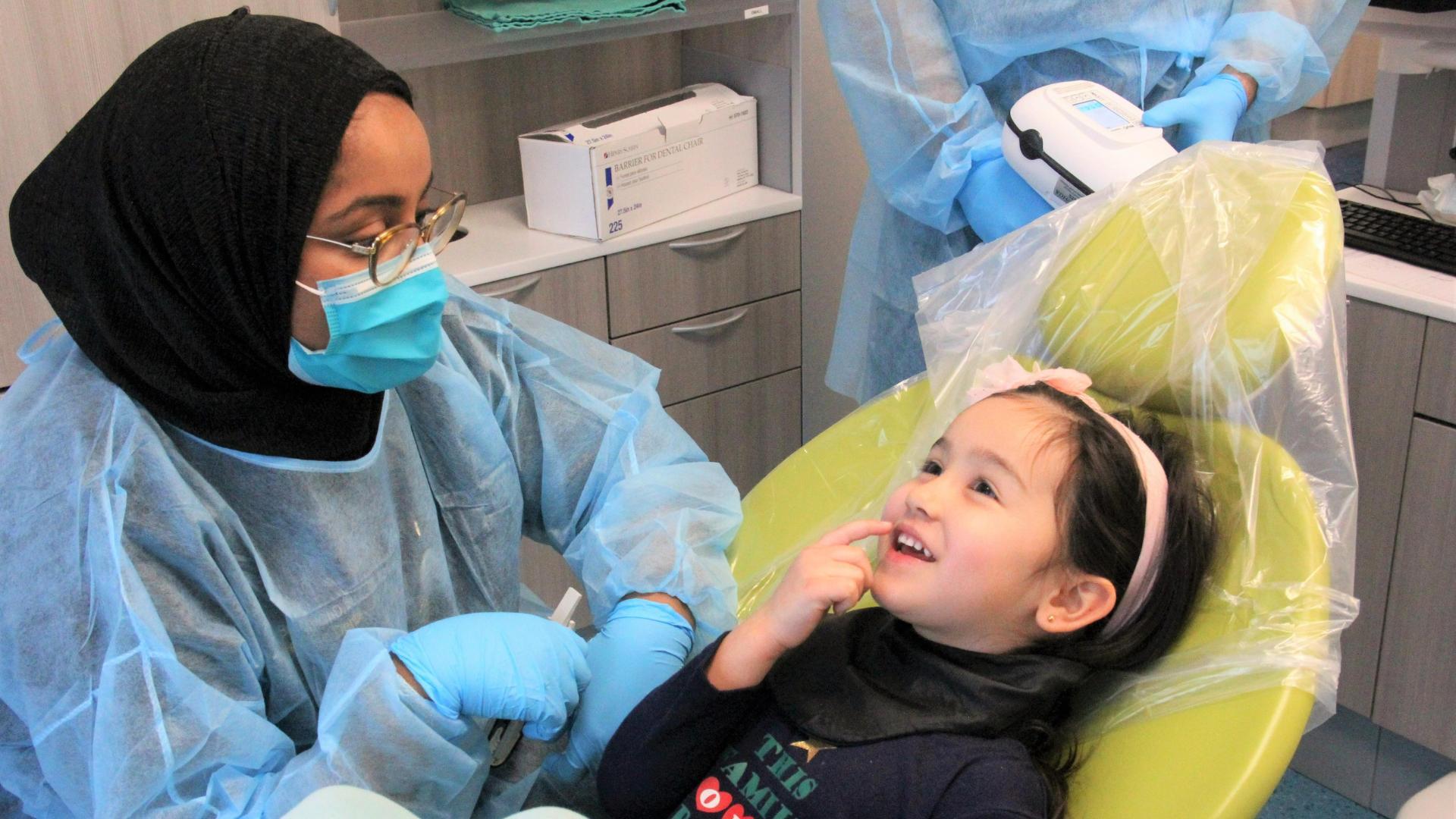Woodhull Pediatric Dentistry Residency Program
The Woodhull Medical and Mental Health Center Pediatric Dentistry Residency Program offers a comprehensive training experience for aspiring pediatric dentists. It combines rigorous academic instruction with extensive hands-on clinical experience in a diverse patient population. Residents benefit from a supportive learning environment fostered by experienced faculty mentors dedicated to their professional growth and development. The program’s commitment to both patient care and research makes it a highly sought-after opportunity.
The curriculum covers a wide range of topics, from basic pediatric dental procedures to complex cases requiring specialized knowledge and skills. Residents rotate through various clinical settings, gaining exposure to different patient populations and healthcare environments. Mentorship is a key component, with dedicated faculty advisors providing guidance and support throughout the residency. Research opportunities are also available, allowing residents to contribute to the advancement of pediatric dentistry.
Program Overview: Woodhull Medical And Mental Health Center Pediatric Dentistry Residency Program
The Woodhull Medical and Mental Health Center Pediatric Dentistry Residency Program is dedicated to training highly skilled and compassionate pediatric dentists. The program aims to cultivate future leaders in the field, equipped to provide comprehensive oral healthcare to children from diverse backgrounds.
Program Mission and Goals
The program’s mission is to provide residents with a rigorous, hands-on learning experience that fosters excellence in clinical care, research, and leadership. Key goals include developing residents’ expertise in diagnosing and treating a wide range of pediatric dental conditions, promoting oral health awareness within the community, and contributing to the advancement of pediatric dentistry through research and scholarship.
Curriculum and Rotations
The three-year curriculum integrates didactic instruction, clinical practice, and research experiences. Core rotations include general pediatric dentistry, orthodontics, oral surgery, and hospital dentistry. Residents also have opportunities to pursue elective rotations in areas such as sedation dentistry, craniofacial anomalies, and special needs dentistry, tailoring their training to their individual interests and career goals. The program emphasizes a comprehensive approach to pediatric dental care, incorporating preventive, restorative, and surgical techniques.
Comprehensive Pediatric Dental Care
The program is committed to providing comprehensive pediatric dental care, addressing the unique oral health needs of children. This includes preventive care like oral hygiene instruction and fluoride treatments, restorative care such as fillings and crowns, and more complex procedures such as pulpotomies and extractions. The program emphasizes a holistic approach, considering the child’s overall health and development.
Faculty and Mentorship
The program boasts a distinguished faculty of experienced pediatric dentists, each with a unique area of expertise. Residents benefit from close interaction with faculty members, who provide guidance and support throughout their training.
Faculty Expertise and Experience
Faculty members possess extensive experience in various aspects of pediatric dentistry, including clinical practice, research, and teaching. Their collective expertise ensures residents receive a well-rounded education encompassing a wide range of clinical skills and theoretical knowledge. Many faculty members are actively involved in research and publish in leading journals in the field. Examples include Dr. X specializing in early childhood caries prevention and Dr.
Y focusing on the management of cleft lip and palate.
Mentorship Opportunities
Each resident is assigned a primary mentor who provides individualized guidance and support throughout the residency. Mentors help residents develop their clinical skills, research interests, and career goals. The program also offers opportunities for residents to work with other faculty members, gaining exposure to diverse perspectives and approaches to pediatric dentistry.
Resident Professional Development
The program is dedicated to fostering the professional development of its residents. This includes opportunities for leadership development, participation in professional organizations, and attendance at national and international conferences. Residents are also encouraged to develop their teaching skills through mentoring and precepting dental students.
Clinical Experiences
Residents gain extensive clinical experience in a variety of settings, providing them with exposure to a diverse patient population and a wide range of clinical challenges.
Clinical Settings
Residents rotate through various clinical settings, including the Woodhull Medical and Mental Health Center’s outpatient clinic, inpatient hospital wards, and community health centers. This provides exposure to different healthcare delivery models and diverse patient populations.
Types of Cases
Residents manage a wide range of cases, from routine preventive care to complex surgical procedures. Common cases include dental caries, gingivitis, and trauma. More complex cases may include cleft lip and palate, craniofacial anomalies, and medically compromised patients. The diverse caseload ensures residents develop a comprehensive skill set.
Developing Proficiency in Procedures, Woodhull medical and mental health center pediatric dentistry residency program
The program uses a structured approach to ensure residents develop proficiency in various pediatric dental procedures. This includes hands-on training, supervised practice, and regular feedback from faculty. Residents also participate in simulation exercises and workshops to refine their skills in a safe and controlled environment.
Research Opportunities
The program encourages residents to engage in research activities, fostering their critical thinking and problem-solving skills.
It’s great to see the World Health Organization taking a stronger stance on mental health. Check out this article on the WHO’s evolving understanding and renewed hope for improved mental healthcare: world health organisation mental health new understanding new hope. This is crucial because, as highlighted in another report, world health organization urges more attention to mental health problems , demonstrating the urgent need for increased resources and awareness.
Early intervention and accessible support are key to better outcomes.
Available Research Opportunities
Residents have opportunities to participate in ongoing research projects led by faculty members. Topics may include caries prevention, the impact of early childhood caries on overall health, or the effectiveness of different treatment modalities. Residents are also encouraged to develop their own research projects, with faculty support and guidance.
Support for Research Projects
The program provides residents with resources and support to conduct research, including access to research facilities, statistical support, and assistance with grant writing. Faculty mentors provide guidance and feedback throughout the research process.
Contribution to Program Goals
Resident research contributes to the program’s overall goals by advancing the field of pediatric dentistry and improving the quality of care provided to children. Research findings are often disseminated through publications in peer-reviewed journals and presentations at national and international conferences.
Application Process and Requirements
The application process is competitive and requires thorough preparation.
Application Steps
Applicants must submit a completed application form, official transcripts, letters of recommendation, and a personal statement. Interviews are conducted for shortlisted candidates.
Application Requirements
Applicants must hold a dental degree from an accredited dental school and have completed a general practice residency (GPR) or equivalent. A strong academic record and demonstrated interest in pediatric dentistry are essential.
Selection Criteria
Applicants are evaluated based on their academic record, clinical experience, letters of recommendation, personal statement, and interview performance. The selection committee considers the applicant’s potential for success in the program and their commitment to pediatric dentistry.
Resident Life and Support
The program provides a supportive and enriching environment for residents.
Resources and Support Systems
Residents have access to a variety of resources and support systems, including faculty mentors, career counselors, and peer support groups. The program also provides access to mental health services and wellness programs.
Resident Wellness Initiatives
The program recognizes the importance of resident well-being and offers several initiatives to promote resident health and wellness. These may include stress management workshops, mindfulness training, and access to fitness facilities.
Supportive Learning Environment
The program fosters a collaborative and supportive learning environment, where residents feel comfortable seeking guidance and support from faculty and peers. Regular feedback and mentorship ensure residents are on track to achieve their professional goals.
Alumni Network and Career Outcomes
The program boasts a strong alumni network and graduates have achieved success in various aspects of pediatric dentistry.
Alumni Network Benefits

Graduates benefit from a strong alumni network, providing opportunities for networking, mentorship, and career advancement. The alumni network provides a valuable resource for graduates as they transition into their careers.
Career Outcomes
Graduates of the program have secured positions in private practice, academic institutions, and public health settings. Many graduates have pursued further specialization in areas such as orthodontics, oral surgery, or public health dentistry.
It’s great to see the World Health Organization taking a more proactive approach to mental health. Check out this article on the WHO’s new understanding and hope for the future of mental healthcare: world health organisation mental health new understanding new hope. This renewed focus is crucial, as highlighted by another report where the world health organization urges more attention to mental health problems and the need for increased resources and support.
Early intervention and destigmatization are key to improving outcomes, and it’s encouraging to see this global push for better mental wellbeing.
Contribution to Pediatric Dentistry
The program has made significant contributions to the field of pediatric dentistry by training highly skilled and compassionate pediatric dentists who are committed to improving the oral health of children.
Program Accreditation and Recognition
The program maintains high standards of quality and is committed to continuous improvement.
Accrediting Bodies and Recognitions
The program is accredited by the American Dental Association (ADA) and maintains its accreditation through regular self-assessment and site visits. The program may also have received specific recognitions or awards for its excellence in training and research.
Commitment to Quality and Improvement
The program is committed to continuous improvement and regularly assesses its curriculum, faculty, and resident performance to ensure it meets the highest standards of excellence. This includes regular feedback from residents, faculty, and external reviewers.
Maintaining Program Standards
The program employs several processes to maintain its standards, including regular curriculum review, faculty development programs, and resident performance evaluations. The program also adheres to strict ethical guidelines and compliance standards.
Community Engagement
The program is actively involved in community outreach and service.
Community Outreach and Service
Residents participate in various community outreach programs, providing dental care to underserved populations. This may include providing free dental screenings and treatment at community health centers or participating in school-based oral health education programs.
Providing Care to Underserved Populations
The program is committed to providing dental care to underserved populations, ensuring that all children have access to quality oral healthcare, regardless of their socioeconomic status. This commitment is reflected in the program’s partnerships with community health centers and its participation in various outreach initiatives.
Impact on the Local Community
The program has a positive impact on the local community by providing access to quality pediatric dental care and promoting oral health awareness. The program’s community outreach efforts have improved the oral health of many children in the community.
Program Distinguishing Features
Several unique aspects set the Woodhull Medical and Mental Health Center Pediatric Dentistry Residency Program apart from similar programs.
Unique Aspects
The program’s strong emphasis on interprofessional collaboration, its commitment to serving underserved populations, and its robust research opportunities are key distinguishing features. The integration of mental health services within the medical center also provides residents with a unique perspective on holistic patient care.
Comparison with Other Programs
Compared to other pediatric dentistry residency programs, Woodhull’s program may offer a more integrated approach to medical and dental care, given its location within a large medical center. The program’s commitment to community outreach and service may also be more pronounced than in some other programs.
Program Strengths and Advantages
The program’s strengths lie in its strong faculty, diverse clinical experiences, commitment to research, and supportive learning environment. Graduates of the program are well-prepared to excel in a variety of settings and make significant contributions to the field of pediatric dentistry.
Ultimately, the Woodhull Medical and Mental Health Center Pediatric Dentistry Residency Program equips graduates with the skills and knowledge necessary to excel in the field of pediatric dentistry. The program’s focus on comprehensive care, research, and professional development ensures that its graduates are well-prepared to provide high-quality care to children and contribute to the advancement of the profession. The strong alumni network and positive career outcomes further solidify its reputation as a leading program in pediatric dental education.
Share this content:

